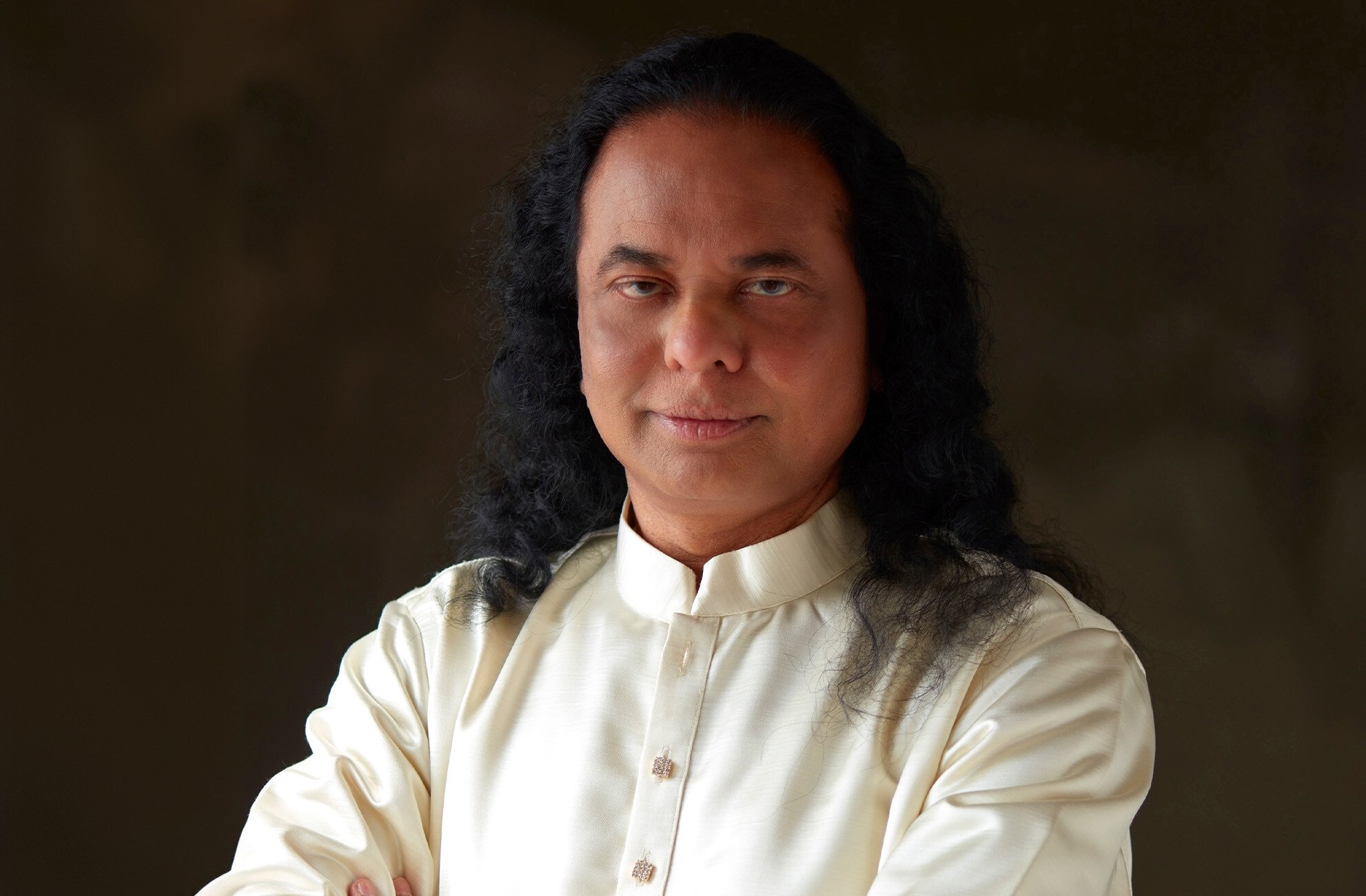BENEFITS
Character Development for Personal Growth
Today, more than ever before, there
is a great deal of discourse about
transformation and personal growth.

CHARACTER DEVELOPMENT
Personal Growth is Impossible
Without Character Development
The personal development industry is a 40-billion-dollar industry, and it continues to grow with each passing year. On the contrary, the World Health Organization states that mental wellness is on a rapid decline with a 25% global increase in the prevalence of anxiety and depression.
With the increasing demand in the personal development industry and the increasing prevalence of poor mental health, it is clear that while the opportunity and supply is huge for personal development, people’s needs are not being met. Why?
Calmness is a requirement for personal growth; it is mandatory
for us to focus on any subject and to quiet our minds from
chattering. However, while so many leaders in the personal
development industry are focused on developing new habits
and behaviors, calmness cannot be manufactured.
Just as we cannot control the family’s we are born into and our
upbringing, there are some things in life that can’t be learnt or
practiced. They are innate, original and part of our imprinted nature. Character is one such attribute which is embedded in us since our creation, and is reflective of our level of consciousness.
It’s not a coincidence that when we use the word ‘character’ in
common conversation, it means integrity or honesty. Because
without raising our consciousness, these attributes simply can’t
be developed by any kind of tricks and practices.
Behavior in reality is nothing but just the expression of character
Good character is not something we live without. Everyone is born with good character, innocence and purity. However, childhood and adolescence are the most important phases of our lives, shaping us more than we realize. It is our collective experiences from the influence of the world that changes us, and a few bad influences can cause lifelong damage to an individual. We become influenced by society and the world through toxic environments and our upbringing with our families, our communities, our peers, our associations, our governments and our education. We, often unwillingly, adopt characters contrary to our innate blueprint of innocence and purity. As a result, we lose our foundations of calmness, joy and awe of life.

Character and behavior are not the same, nor can character be influenced or changed by behavior. Just as spraying perfume does not remove the source of a foul smell, it only hides the smell, so we also cannot alter our character by hiding behind behavior. If we want to transform into better human beings, the first step is to change our characters. But we can never do this with tricks and practices; the only way that it is possible is by raising our consciousness.
Character is the foundation on which our lives stand. Therefore, it must be built in a way that it not only meets the challenges of this world but also prepares us for future happiness and success. Developing our character is the most important part of the journey of personal growth. It’s impossible to rise above the negative influences of our upbringing and society unless we evolve our consciousness.

Connect to the God of Your Understanding
Evolve Your Consciousness
WITH DIVINE CONNECTION
Higher consciousness gives you freedom, purpose in life, well-being, prosperity and happiness.

Transformation
RESOURCES
Character Development
RESOURCES
Well-being
RESOURCES
Finances
RESOURCES
Professional Success
RESOURCES
Better Relationships
RESOURCES
Emotional Well-being
RESOURCES
Mental Well-being
RESOURCES
Physical Improvement
RESOURCES
RESOURCES
Spiritual Growth
RESOURCES
Improved Destiny
RESOURCES
Enthusiasm & Motivation
RESOURCES
Inspiration & Ambition
RESOURCES
Life Purpose
RESOURCES
Calmness
RESOURCES
Perception
RESOURCES
Happiness
RESOURCES
Character and behavior are both interrelated. Character is inherent; it is built-in and very difficult to change. Behavior, however, is a series of choices that can be changed.
CHARACTER DEVELOPMENT
Behavior
Behavior is the manner in which we manage or carry ourselves, and what we display to people around us. It is our actions and reactions, and is influenced throughout our lifetime. While behavior can be based on genuine motives and beliefs, it can be changed for different purposes. Since behavior is a superficial representation of ourselves, it can easily be manipulated or learned through observation, teaching or practice. We all have a set of behaviors which influence how we manage ourselves in our day-to-day lives. A majority of us seek acceptance from certain social circles, hence adapting or changing our behavior accordingly. So much so that we will go to great lengths to justify any kind of behavior that is deemed acceptable in society for the sake of either fulfilling certain desires or avoiding unwanted consequences. People change or adapt their behavior to satisfy or impress others, even if their behavior doesn’t match or resonate with their inherent character. So, it is very common for such people to be very different on the inside than what they appear to be on the outside.
CHARACTER DEVELOPMENT
Character
.png)
Character is not a product of mere behavior; it
is our true nature and the most important
aspect of our lives. Each of us are born with
the inherent nature of purity and innocence.
When this is supported by our environment
and allowed to travel its own due course,
unaffected by corruption or negative
influences, then our being innately constructs
a set of matching qualities, morals, values and
ethics that are aligned with this natural
innocence, fostering good health, wellness,
prosperity and happiness.
Now, it is a fact that emotional maturity, mental attitude and behavior are influenced by factors within our control, as well as those beyond our control. In the pliable years of youth, we are more susceptible to changes in our character that result in us either adhering stronger to our qualities of innocence and purity, or straying and adopting characters for the sake of satiating an unfulfilled desire or in attempts to avoid unwanted circumstances and adversity.
The prefrontal cortex, or decision-making aspect of our brains, does not fully develop until we are 25 years of age, meaning that up until the age of 25, our character development is strongly impacted by our environment, upbringing, circumstances, family, culture, language, identity, education, location and government, etc., all of which have powerful influence over the cultivation of good and bad characters.
The subconscious mind is a part of our mind that works on the principles of reality, authenticity and morality. When we take action or make decisions in our lives that align with our morals, ethics and values, then our subconscious mind rewards us with greater cognition, inspiration, motivation, enthusiasm, ambition, satisfaction, peace and happiness. Through our environment and upbringing, if we adopt good characters, then the subconscious mind leads our lives, empowering us for incredible growth, great success, wellness, harmony, prosperity and happiness.
For every immoral action, the subconscious mind punishes us with guilt and grief, which is responsible for dozens of mental health problems such as anxiety, depression, stress, poor quality sleep, tiredness, fatigue, mental restlessness, poor cognition, inability to focus, poor productivity, inability to make the right decision, lack of inspiration, motivation, enthusiasm and ambition, etc. Hence ethics and morality are mandatory to enjoy a satisfactory and happy life.

If our upbringing environment is toxic, we are more susceptible to adopt bad characters. As a result, the unconscious mind reigns over our lives. This part of our mind is a storage bank of unconscious feelings, thoughts, memories, urges and desires as well as trauma, pain, anxiety and conflict that is too painful or unpleasant to exist within the periphery of our awareness.
The unconscious mind operates on the pleasure and fantasy
principle, and its sole purpose is to fulfill its own desires – no
matter how unreasonable or irrational, and without any regard for
future consequences. The unconscious mind doesn’t care about
ethics, morality or values. Rather, it works on the principles of
unethicality, immorality and selfishness. For this reason, those
who operate under the leadership of the unconscious mind remain
childish and immature and become impractical, dishonest, impatient
and frustrated. For every immoral action, the subconscious mind
punishes us with guilt and grief. The greater we fall, the greater
pain we feel when we face the harrowing scrutiny of our subconscious
mind. Our conscious mind then has a choice; to take accountability
and rectify our mistakes, or to suppress our feelings and further
fuel the driving force of our unconscious mind.
However, since we do not fully develop our executive functions or decision-making capabilities until the age of 25, if we are living in a poor or toxic environment, we adopt habits, patterns and characteristics from others that merely feed into the pain or quick-fix mentality of the unconscious mind. This becomes more and more ingrained, more and more habitual and more and more unconscious until we no longer have conscious control or reflection over our own lives by the time the executive faculty of our minds is finally at its peak.
As a result, the storage of collected unfulfilled desires in the unconscious mind is fed with more and more pain, conflict and trauma. With the pleasure principle of the unconscious mind guiding our thoughts, choices and actions, we instead choose a quick fix to quickly start feeling good again, and to further numb us from the pain of ignoring the continuous feedback from the subconscious mind. This cycle repeats and builds, and is the greatest root cause for a multitude of emotional and mental health problems that are so common today, such as poor health, poor quality sleep, anxiety, depression, stress, inability to focus, fear of the future, constant mind chattering, and ultimately a life of frustration and misery.
-1.png)
More than 90% of our thoughts, choices and actions are not a conscious decision we make – rather it comes from pre-programmed instructions rooted deep into our unconscious and subconscious minds, that ultimately regulates all of our mental processes including our emotions, moods, wants, needs, desires and motives. The only way to truly develop ourselves and transform our lives into satisfaction, success, wellness and happiness, is to change the program our lives are currently operating on. This can only be done through the transformation of character.
-1.png)
The impact of environmental upbringing on character development can also be observed in plants. For example, the impact of an unfavorable environment on the yield of a plant is poorer quality, lower quantity and a shorter life-span. Likewise, you cannot expect people to grow in their character if they are raised in less favorable environments. Plant nurseries know this and deliver guaranteed disease-free plants for others to grow vegetables, fruits and flowers. For any variety of plant, its place of plantation will decide its value in terms of quantity and quality of final produce.
If a variety of plant is planted in a poor environment with less fertile land and adverse weather conditions, then it will deliver poorer quality and lower quantity of produce. However, if the same variety of plant gets planted in a more favorable environment with fertile land and favorable weather conditions, then it will deliver much better quality and quantity of produce. We can observe a similar outcome with character development in people. Children raised in different environments will grow up different, with either good or bad characters; this impact becomes a vital foundation that shapes the rest of their lives.
True Behavior is the Expression of Character
Nature is the ultimate programmer of character. We see this even in the realm of materials science, in which materials like metals, ceramics, polymers and chemicals are defined by a rigid set of physical constants and characters.
The only way we can recognize and identify a material is by ascertaining the characteristics of the material, such as its look, feel and smell; whether it is a solid, liquid or gas; its density, latent heat and melting, boiling and freezing points. By identifying these characters, we are then able to identify the material. In other words, the character and behavior of a material are one and the same.
-1.png)
-1.png)
People, however, are the only entities on this planet that can behave differently from their character. Behavior is the natural expression of character, and both must have resonance with each other. However, due to our environmental upbringing, we may adopt bad characters, while simultaneously learn how to behave charismatically or portray ourselves in a way that is not in resonance with our character.

Today, more than ever before, there is a great deal of discourse about transformation and personal growth. This is because of the rapid development in our society with the advancement of science and technology. Today we have almost everything at our disposal to make our lives easier or more comfortable, with very little effort and time spent on it.
There are many people and organizations that claim to have the secret to a happier life. They promise their clients quick and lofty benefits in exchange for a fee. But do their programs actually work? Often, these programs are not just ineffective. Rather, their focus on behavior-oriented outcomes to falsely manufacture transformation in character can actually do more harm than good.
Since behavior is the natural expression of character, the moment our character and behavior differ from each other, we are at odds with ourselves, which leads to a vast number of emotional and mental health problems, frustration and misery.
This is why our current healthcare system is struggling to properly address the rapidly increasing prevalence of mental and emotional health problems. By only focusing on the symptoms and behaviors at a superficial level, we are missing the root cause of these problems – character.
Transformational leaders, life coaches, mentors, lifestyle trainers, and health and nutrition coaches are only superficially targeting personal growth and development with tricks and techniques to alter behavior, communication and presentation.
Character transformation should be the main goal of personal growth and development. Without the transformation of character, nothing can be accomplished. Unfortunately, a majority of the industry's current leaders lack either the integrity, the understanding or the means to make this happen.
The Solution
We may like to think that our
success and happiness in life can
easily be swayed by a simple tweak
in our behavior, communication or
presentability.
However, if we think that changing
our behavior and communication
style can transform our character
and make us successful people,
then we are gravely mistaken.
-1.png)
-1.png)
Many people struggle their whole lives for character development by practicing various techniques for behavior alteration, thinking that an alteration in behavior and communication style will be able to transform their character. Character is the foundation on which our lives stand. Therefore, it must be built in a way that it not only meets the challenges of this world, but also prepares us for future happiness and success.
Character decides whether the subconscious mind or the unconscious mind leads our lives. The conscious mind, or the rational mind that operates on the principle of reality, merely acts as a referee between the two.
Who controls, governs and operates our character? Thousands of personal development and transformational leaders think that by simply altering behavior, character can be altered. On the contrary, behavior is the expression of character. So how do we transform our character? Without knowing the authority that governs our character, people live their entire lives trapped and spinning in circles, from one frustration to another, often never truly understanding why or how to stop this cycle. Improving the aroma, taste, look or feel of a fruit will not transform the health of the entire tree. This is reverse engineering, and it will never work.
The transformation of character has been a difficult debate throughout the centuries. There is no doubt that the greatest struggle the thought leaders of the world currently face is in the transformation of character. As leaders, this transformation is critical to fuel progress and achieve great things, but so often it only happens at a superficial level. Science currently has no solution. However, religion and spirituality have had a more concrete way of changing one's character - a solution that has
existed for thousands of years: consciousness. One must only elevate their consciousness to change their characters.

If a person has a higher consciousness, that person will naturally have good character. Similarly, bad characters are the expression of lower consciousness. Low consciousness can only be elevated for higher consciousness when people possess good characters such as values, ethics, morals and gratitude, etc. Religion and spirituality are all aware of this truth that governs and controls us.
-1.png)
For the evolution of consciousness, people need a deeper connection with the God of their understanding. Through this connection, everyone will be able to harness more Grace of God or Divine Energy, and naturally this Divine Energy will evolve us into higher consciousness.
Then, automatically, we will have good character, which will bring forth health, wellbeing and happiness into our lives. There is no technique, trick, practice or behavior for the evolution of consciousness; it is the natural character and responsibility of consciousness to organize our beings and continue to evolve us in a way that better enhances our performance and allows us to transcend our current skills, abilities, inner qualities and personality. The only thing we must do is harness this vital force, life energy or Divine Grace, which is possible through Guruji Trivedi’s Divine Blessing.
Be a Part of a Modern Miracle
Divine Connection transforms every facet of an individual’s well-being,
enhances perception, and accelerates growth to harness true happiness.
Box 370
Southlake, TX 76092



